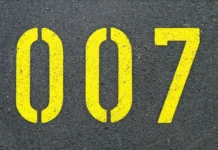Ireland’s Gambling Regulation Bill of 2022 is currently in the fourth stage, as of 12 July 2023, which is the reporting stage. It is expected that the new bill will come into law this year, making online gambling legal and regulated within Ireland for the very first time. The move comes after more and more countries embrace this new revenue-making market.
What is proposed in the Gambling Regulation Bill?
The Gambling Regulation Bill is designed to introduce in-country licensed gambling within Ireland, by setting up a Gambling Regulatory Authority, Údarás Rialála Cearrbhachais na hÉireann. The Authority will be able to distribute licenses for betting, gaming, lotteries, and associated gambling products and services. The Bill also outlines items such gambling license register, a national gambling exclusion register, a Social Impact Fund, and more.
The Bill also introduces other areas of gambling program management such as advertising and sponsorship, with strict measures surrounding their promotion. There is to be a ban on gambling advertising altogether between 5.30 am and 9 pm across TV, radio, and on-demand audio-visual media services.
Why was the Gambling Regulation Bill introduced?
Gambling laws are changing all over the world thanks to the rise of online gambling. While 20 or 30 years ago, it would’ve been almost impossible to provide instant gambling globally that was free from vulnerabilities and looked good these days, your smartphone can do it all.
While countries have struggled to put pen to paper to legislate around any internet-related activities and services, innovative gambling houses have sprung up in offshore locations to service customers where their own governments can’t keep up.
What this has led to is a thriving offshore model, with a few different countries offering licensing for global gambling operations. These countries have directly benefitted from these arrangements, while the country where the customer is betting loses out.
For countries and jurisdictions where in-person gambling is already legal, it makes little sense not to legalise online gambling and start to claim taxes from licensed operators. Despite this fact, it is only just in the past few years that more and more countries have started to legislate for the change. This is in part because the US now allows online gambling at the federal level, and countries have realised that they must legislate on internet-related matters; they won’t just disappear or go away.
Why is Malta getting involved in the discussion?
In light of the newly proposed legislation, Maltese officials have voiced their reservations, highlighting the fact that it may indirectly encourage black market activity. This means that because of the new law’s restrictive conditions, players seeking popular no deposit bonus or similar promotions may resort to consciously opting for illegitimate providers.
So just why is Malta getting involved in all this action, when they aren’t even neighbours with Ireland? That would be because Malta has become the de facto home of many of Europe and the world’s gambling operations, thanks to their longstanding gambling licensing program. For decades, Malta has been a hub for online gambling, when countries themselves did not allow providers to licensee and distribute their gambling apps within the country. By offering this space to international providers, Malta sees around 12% of its GDP come in from the online gaming industry. The country also employs thousands of people to run these operations from the stunning Mediterranean isle.
When countries prepare to launch their own, legal online gambling market from within their borders, this, of course, has a knock-on squeeze effect on Maltese-based providers already catering to that market. This means that Malta itself will typically take a scrutinous eye to the newly proposed legislation, and will often speak up, particularly if there are obvious flaws and loopholes.
But would it really increase black market activity?
Malta has said, through the EU’s European Commission technical regulation information system, that as certain games would not be allowed under the system, that this prohibition might cause players to seek out an illegal black market to play within instead. Of course, this may well be the case. If you are on a sports betting app and suddenly think, “Ooo, I also like playing blackjack when I’m making bets,” and then can’t find a legal blackjack app, you may look to other apps of dubious legality.
However, this stands whether Ireland introduces these gambling laws or not. With the current system, every gambling app that people access is of dubious legality given the jurisdiction. It’s unlikely that black market player activity will increase given the new set of changes. Will more dirty money flow through the country through legal methods? Potentially. Money laundering is a significant area of legislative action in newly-minted gambling license-granting states and territories. But that is something that must be worked out in the details of the program itself.













